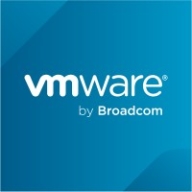

Google App Engine and VMware Tanzu Platform are competing products in the realm of cloud computing and application deployment. Google App Engine has an upper hand in cost-effectiveness and ease of use, while VMware Tanzu offers advanced features and deeper customization for enterprise applications.
Features: Google App Engine provides automatic scaling, seamless integration with Google Cloud services, and a robust infrastructure for app development. VMware Tanzu Platform offers extensive Kubernetes support, a comprehensive suite of tools for DevOps, and proficient microservices management.
Room for Improvement: Google App Engine can improve flexibility in service choices, offer more powerful free tiers, and enhance multi-cloud support. VMware Tanzu Platform could enhance pricing models to better appeal to smaller businesses, streamline its complex deployment processes, and improve initial integration experiences for new users.
Ease of Deployment and Customer Service: Google App Engine simplifies deployment with managed infrastructure and strong customer support, minimizing manual configurations. VMware Tanzu Platform provides a customizable deployment model ideal for enterprise-grade applications but requires nuanced service management and offers tailored environments.
Pricing and ROI: Google App Engine’s competitive pricing is ideal for smaller developers through its pay-as-you-go model, offering initial cost savings. VMware Tanzu Platform, while needing a larger initial investment, provides high ROI with its extensive feature set, making it adaptable to enterprise needs and optimizing long-term value.
| Product | Market Share (%) |
|---|---|
| Google App Engine | 2.0% |
| VMware Tanzu Platform | 3.5% |
| Other | 94.5% |


| Company Size | Count |
|---|---|
| Small Business | 15 |
| Midsize Enterprise | 7 |
| Large Enterprise | 13 |
| Company Size | Count |
|---|---|
| Small Business | 10 |
| Midsize Enterprise | 3 |
| Large Enterprise | 10 |
Google App Engine is a Platform-as-a-Service (Paas) provider that equips web application developers with all the resources and tools that they need to develop, test, and run their applications on Google's infrastructure. Everything is built into the kit, so with one download of the SDK, you'll be well on your way to first-rate apps.
VMware Tanzu Platform is designed for cloud-native development and management of Kubernetes, CI/CD processes, microservices, and containerized workloads. It supports deployments both on cloud and on-premises, providing centralized management via Mission Control.
VMware Tanzu Platform offers seamless integration with vSphere, ESX, and vSAN, supporting centralized cluster management and lifecycle management. The platform provides a GUI for monitoring CI/CD pipelines and network policies, enhancing multi-tenancy and Day 2 operations. Users can easily manage Kubernetes clusters, monitor applications, and integrate with tools such as GitHub, GitLab, Cloud Foundry, and Azure. It ensures compliance and security for service providers, financial institutions, and businesses.
What are the key features of VMware Tanzu Platform?
What benefits and ROI should users look for in VMware Tanzu Platform reviews?
Industries such as financial institutions, service providers, and businesses requiring rigorous compliance and security deploy VMware Tanzu Platform. These entities benefit from centralized management, streamlined DevOps processes, and integrated tools, enhancing their capabilities in cloud-native developments and containerized workloads.
We monitor all PaaS Clouds reviews to prevent fraudulent reviews and keep review quality high. We do not post reviews by company employees or direct competitors. We validate each review for authenticity via cross-reference with LinkedIn, and personal follow-up with the reviewer when necessary.